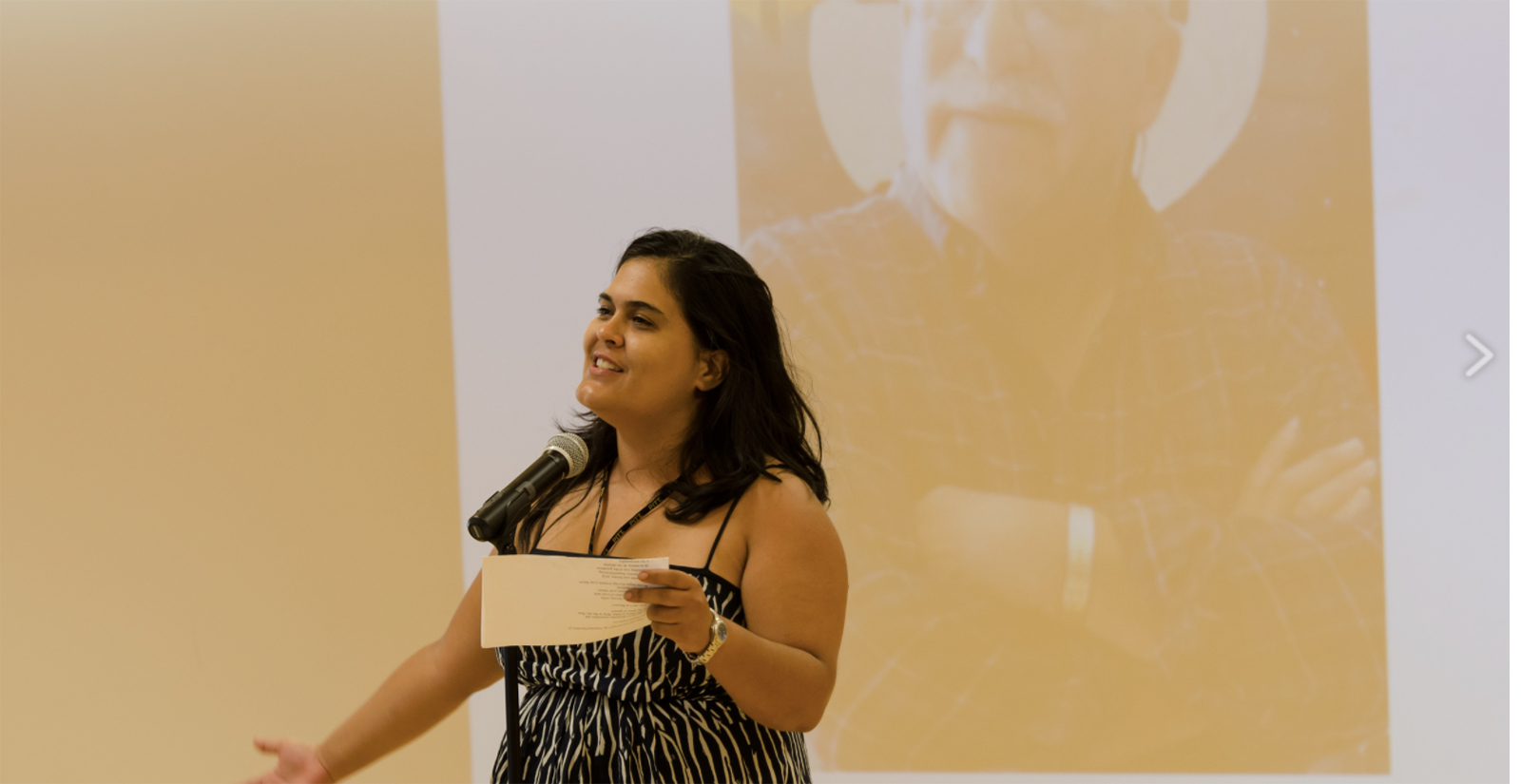Digital Leadership Symposium
5 Questions with Cafe y Cultura’s upcoming guest, Adriana E. Ramírez

Adriana E. Ramírez started her NHI career as an ambitious high school student at McAllen Memorial with an eye on brandishing a gavel (which she would eventually do as an LDZ Lt. Governor). She’s gone on to serve NHI in a number of roles, including as a staffer and as a board member.
She’s also made a name for herself as a writer, winning the 2015 PEN/Fusion Emerging Writer’s Prize, which is given to recognize a promising writer under age 35 for an unpublished work of nonfiction that addresses a global or multicultural issue, for her nonfiction novella, Dead Boys.
In 2016, she was named Critic At Large by the Los Angeles Times’ Book Section. where she writes book reviews and essays on all things literary.
Her writing has appeared in ESPN’s The Undefeated, the Los Angeles Review of Books, Literary Hub, Guernica, Convolution, HEArt, Apogee, and Nerve.com.
In advance of Friday’s Cafe y Cultura session at 3:30 pm, we asked her five questions to help shed light on how NHI has helped her be a leader in her professional field and in her community.
Why did you become a writer? And, specifically, why did you become a creative nonfiction writer?
I don’t think one chooses to become a writer; one simply finds out they have an affinity for and willingness towards the craft. Writing is my favorite of the disciplines. Because anyone can be a good writer with enough practice. But few people can really make art with it. And striving to do that, engaging that struggle, has been a life’s pursuit. I’m dabbled in many forms of writing—I’ve published a book of poetry, a lyric memoir, and I’m working on a book of CNF and a novel simultaneously. I love the research inherent to CNF, but I think every story needs to find its form.
What lessons from your time in NHI have stuck with you the most?
NHI taught me the value of public speaking and showed me that there are various pathways to leadership. My experiences also highlighted to me the importance of having something to say—not just pretty words, but substance.
The RGV is a particularly important region in NHI’s history and ongoing legacy. What should people know about the RGV that they might not know?
The Valley is a fairly unique place. I recently read that it’s actually one of the least diverse places in the country—we’re over 90% Latinx! But the RGV has a culture, language, and food unlike anywhere else in Texas. There are communities in the region that are older than our country, even as borders and the governments of kings, colonizers, and the indigenous formed and reformed around them. Yet, the people have remained. I think that resilience has heavily informed the culture of the RGV.
You moved from places with decidedly large Latino populations to Pittsburgh — how has that impacted your worldview?
I miss good Mexican food, but there’s some decent Tex-Mex available—even in the ‘burgh! I’m excited, though, because Pittsburgh has a very large Colombian population, and a good Colombian joint. During the World Cup, all the Mexicans, Colombians, and Latinos showed up and it felt like home in all the right ways. I could write books about migration and how all the places I’ve lived have changed me. We’re consumed by communities in so many ways.
You’re recently shared with me that your oldest child is beginning to work out grammar in both English and Spanish as he learns those languages. What is that helping you understand about language and the power of words?
My parents chose to teach me Spanish at a young age. The way they tell it, my dad only spoke to me in English, and my mother only spoke to me in Spanish. This way, I learned both languages at the same time. The spouse and I are trying to do that with the kids. A byproduct of which is that the spouse now speaks excellent Spanish for a Midwesterner. My whole life, I’ve never been sad that I speak fluent Spanish. I’ve never regretted my language acquisition skills or my ability to code-switch when necessary. I hope to pass that on—the ability to bifurcate your tongue. It’s how we survive; we master new languages while never forgetting our own.
To register for Friday’s session, click this link.

Comments (0)